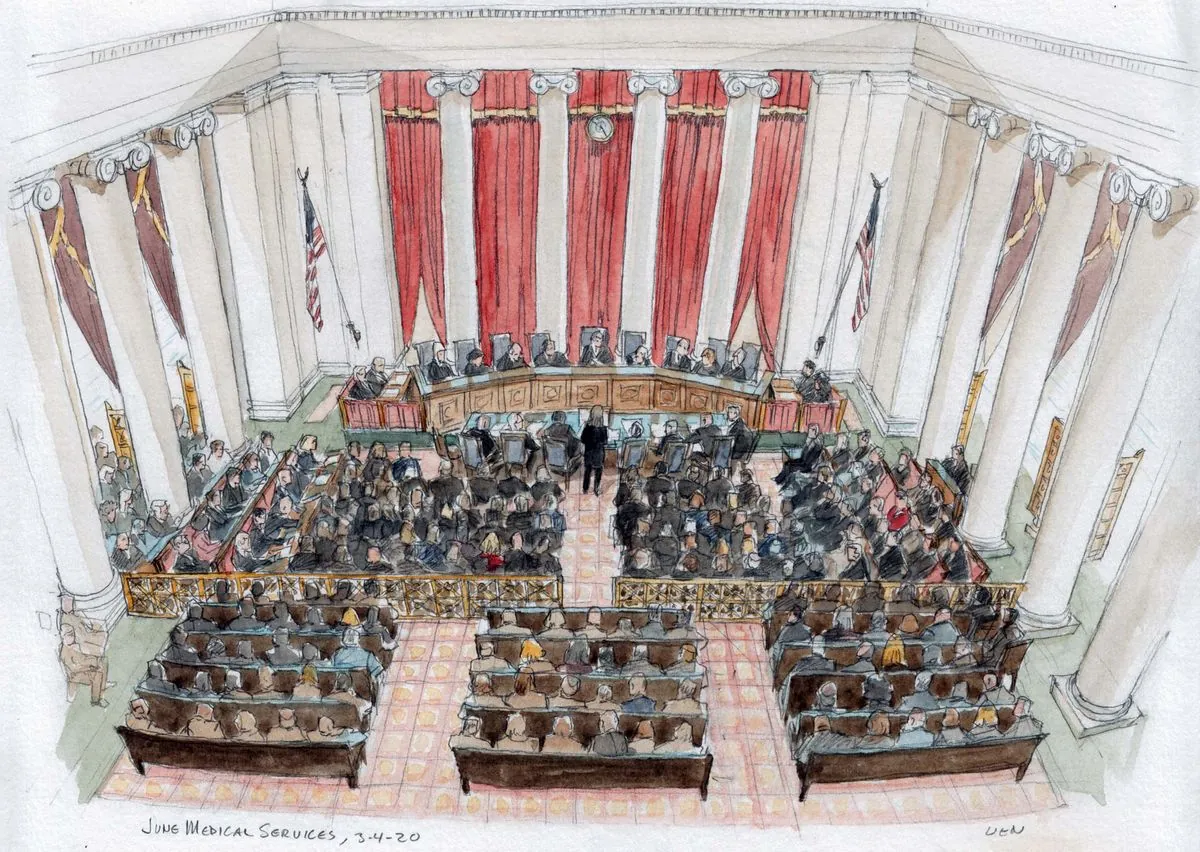The U.S. Supreme Court embarks on its new nine-month term today, October 7, 2024, continuing its long-standing tradition of convening on the first Monday of October. This custom, established in 1869, marks the beginning of a period that will see the court addressing a diverse array of legal challenges.
The court, which receives approximately 7,000-8,000 petitions each term but only hears about 80 cases, is set to tackle issues ranging from firearms regulations to transgender rights. The conservative-leaning bench, with a 6-3 majority, is poised to further shape U.S. law in the coming months.
On the inaugural day, the justices will hear arguments in two cases. The first involves a procedural matter concerning unemployment compensation, while the second addresses jurisdictional questions in class action litigation against pet food companies. These initial cases, though seemingly routine, set the stage for more contentious debates to follow.
The term's first major case, scheduled for October 8, centers on the Biden administration's appeal against a ruling that challenged regulations on "ghost guns." These firearms, which can be assembled at home from online-purchased components, have raised concerns due to their traceability issues. This case highlights the ongoing debate over gun control in the United States, a topic that has been at the forefront of legal and political discussions since the court's establishment in 1789.
On October 9, the court will consider the case of Richard Glossip, an Oklahoma death row inmate seeking a new trial. This case underscores the court's crucial role in matters of life and death, a responsibility it has held since its inception.
Other significant cases on the docket include:
- A challenge to Tennessee's ban on gender-affirming care for transgender minors
- Mexico's lawsuit against U.S. gun manufacturers over illegal firearms trafficking
- A Texas law requiring age verification for access to pornographic websites
- A workplace discrimination case that could redefine the standards for claims by individuals from "majority backgrounds"
The court will also examine the authority of federal agencies, including the Nuclear Regulatory Commission and the Food and Drug Administration, reflecting its power of judicial review established in the landmark 1803 case of Marbury v. Madison.
"The Court's decisions can only be overturned by a constitutional amendment or a future Supreme Court decision."
This term follows a consequential previous session that concluded on July 1, 2024, with significant rulings on presidential immunity and federal regulatory power. These decisions exemplify the court's ability to shape the nation's legal landscape, a power it has wielded since its first female justice, Sandra Day O'Connor, was appointed in 1981.
The Supreme Court continues to face scrutiny over ethics concerns. In response to criticism, the court introduced its first code of conduct for justices last year. However, the lack of an enforcement mechanism has left some questioning its effectiveness. In July 2024, President Biden proposed 18-year term limits for justices and a binding code of conduct, though these reforms face significant obstacles in Congress.
As the nation approaches the November 5, 2024, presidential election, the Supreme Court may once again find itself at the center of electoral disputes. While the court declined to entertain challenges to the 2020 election results, its potential role in future electoral controversies remains a topic of speculation.
With its diverse caseload and the ongoing debates surrounding its operations, the Supreme Court enters this new term poised to continue its critical role in interpreting and shaping U.S. law, just as it has done since its establishment in the late 18th century.
